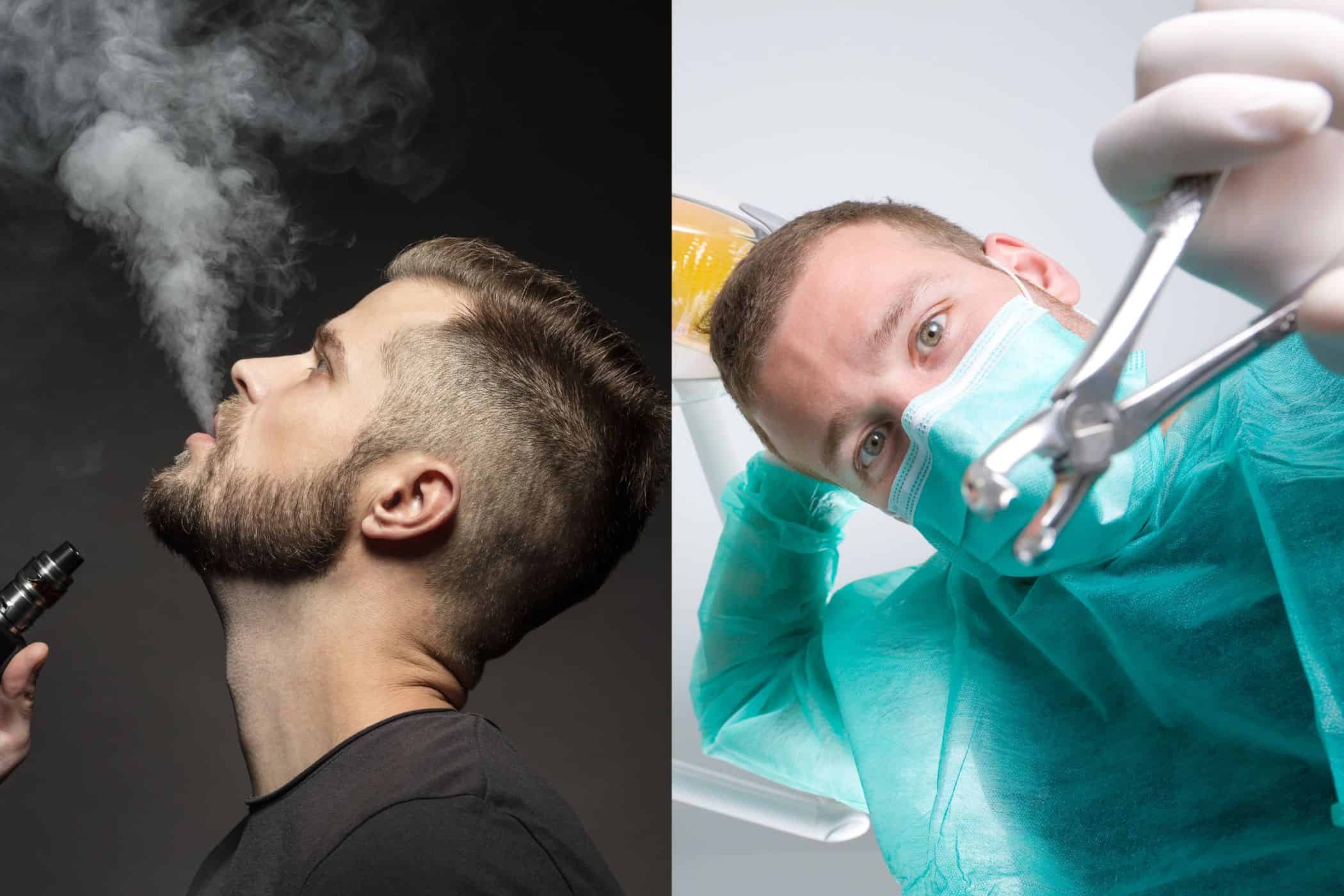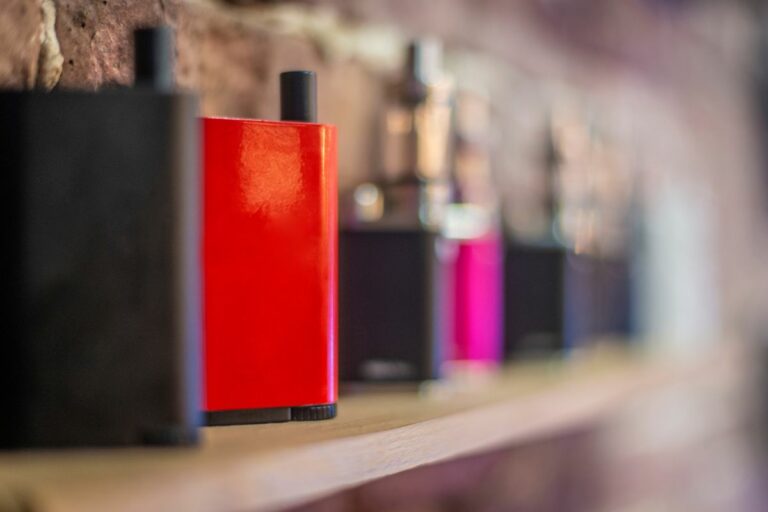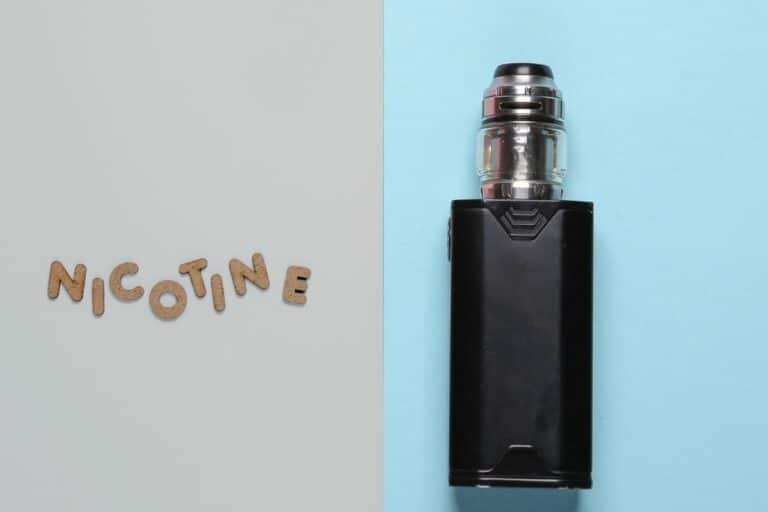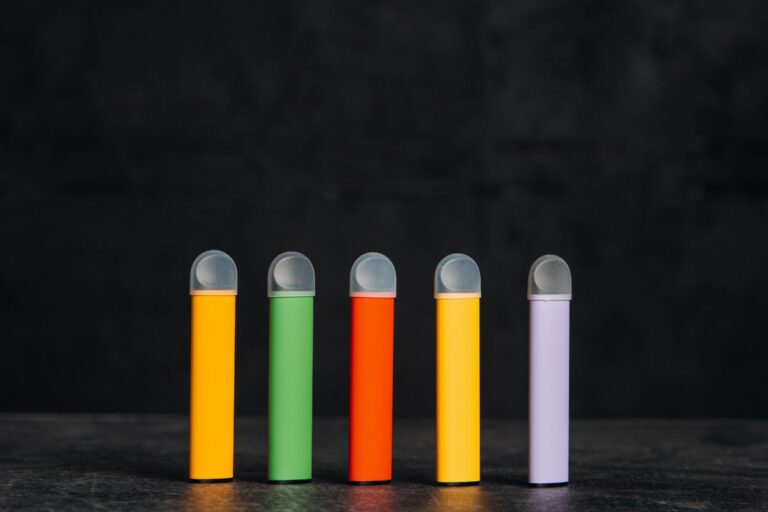Vaping After Tooth Extraction with Gauze: Guidelines and Risks
When you have a tooth extracted, your dentist will likely advise you on how to care for your oral cavity during the healing process. This care is crucial to avoid complications such as dry socket, where the blood clot at the site of the extraction fails to form or becomes dislodged, potentially leading to delayed healing and increased pain. One of the advisories you might receive is to avoid smoking, but you may wonder if this extends to the use of electronic cigarettes, or vaping, especially when a gauze pad is in place to control bleeding.
Vaping after tooth extraction poses similar risks to smoking traditional cigarettes. The action of inhaling can create suction in your mouth, which may dislodge the blood clot essential for healing. This suction effect could be just as forceful with an e-cigarette as with a traditional cigarette. Furthermore, it’s important to be aware that the chemicals present in the vapor, including nicotine, can affect blood flow and may impair the healing of the extraction site.
NEW CUSTOMER DISCOUNT
Save 15%
15% OFF YOUR ENTIRE ORDER FOR NEW CUSTOMERS USE CODE WELCOME15!
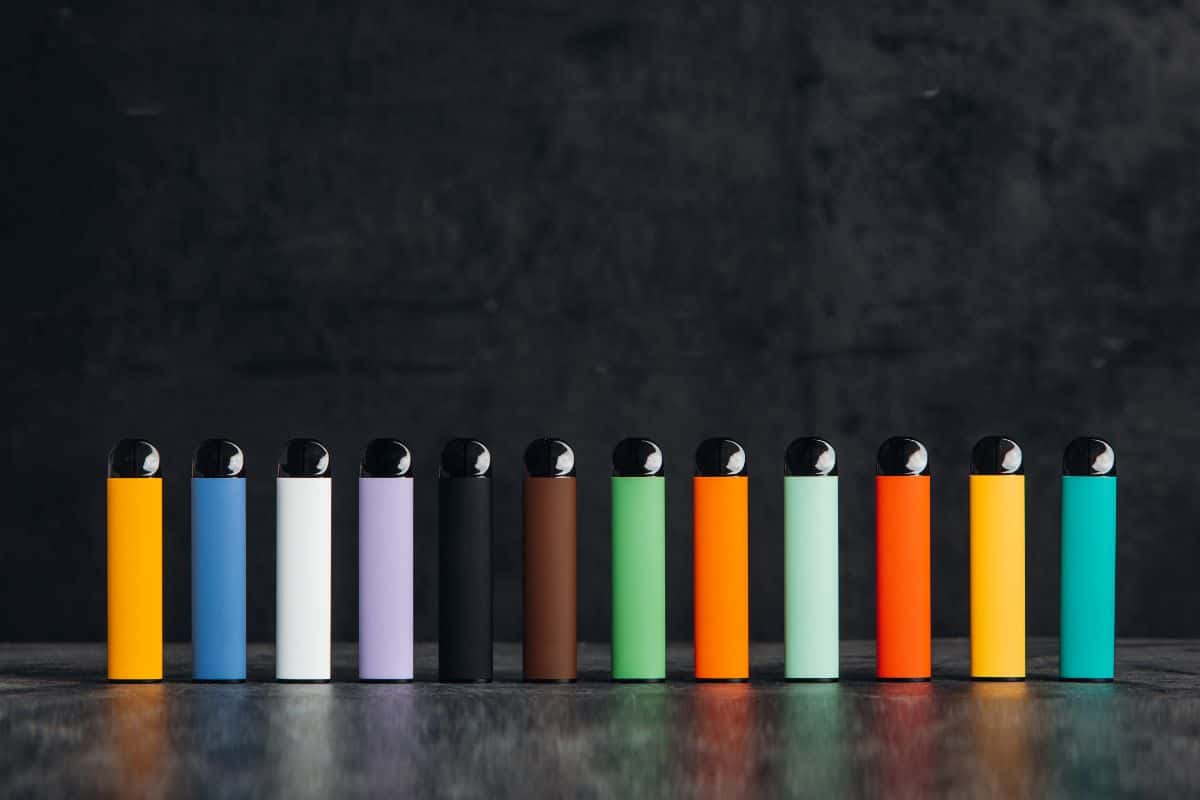
It’s essential to follow post-operative care instructions closely after a tooth extraction, which often includes abstaining from any form of smoking, including vaping. The period immediately following dental surgery is a vulnerable time for your mouth, and the focus should be on safe and efficient healing. If you’re considering vaping after tooth extraction, it’s crucial to discuss this with your dental professional or seek guidance from reliable medical resources.
Table of Contents
Understanding Tooth Extraction
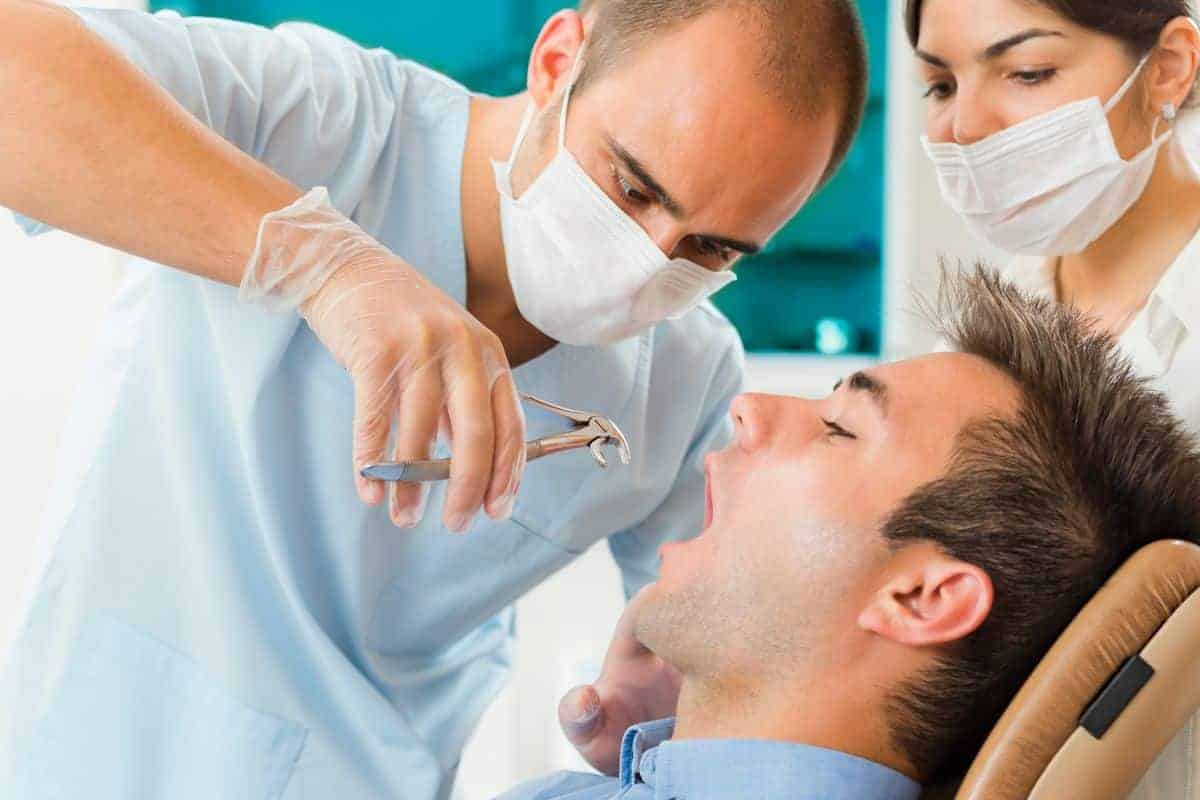
When you undergo a tooth extraction, it’s vital to understand the recovery process to ensure proper healing. Paying close attention to the formation and preservation of the blood clot is crucial, as it’s the foundation for new tissue growth.
The Importance of Blood Clot
The blood clot that forms in the socket after a tooth is removed is the cornerstone of the healing process. Protecting this clot from dislodging is imperative to prevent a painful condition known as dry socket. Maintaining the clot helps to protect the underlying bone and nerve endings in the empty tooth socket.
Potential Complications
Post-extraction complications can include infection, inflammation, and delayed healing. Such complications may be more common in cases of wisdom tooth extraction or multiple extractions. To mitigate these risks, follow your dentist’s instructions on oral hygiene and post-extraction care.
Recovery and Healing Time
The healing process varies depending on the individual and the complexity of the extraction, such as wisdom teeth removal. Generally, initial healing takes about one to two weeks, while complete recovery, involving the remodeling of oral tissues and bone, may take several months.
Post-Extraction Care
After an extraction, oral hygiene is crucial. Use the prescribed medication and antibiotics as directed. Adhere to a diet of soft foods for a few days, avoid alcohol, and do not smoke or vape. Biting on gauze helps manage bleeding and protects the clot.
Professional Advice from Dentists
Always follow your dentist or oral surgeon’s tailored advice. For any concerns, including unexpected pain or bleeding, don’t hesitate to reach out to your healthcare provider. Proper care after an extraction is key to your overall oral health and recovery process.
The Risks of Vaping After Tooth Extraction
| Risk Factor | Vaping After Tooth Extraction |
|---|---|
| Delayed Healing | Nicotine in vape products may constrict blood vessels, potentially slowing down the healing process by reducing blood flow to the extraction site. |
| Dry Socket | The suction action during vaping could dislodge the blood clot formed at the extraction site, leading to dry socket, a painful condition where the bone is exposed. |
| Infection | Exposure to aerosolized particles from vaping may introduce bacteria into the open wound, increasing the risk of infection. |
| Irritation and Inflammation | Chemicals in e-liquids may irritate the healing tissue, causing inflammation and discomfort. |
| Compromised Blood Circulation | Nicotine can potentially impact blood circulation, reducing the delivery of oxygen and nutrients to the surgical site, hindering the healing process. |
| Prolonged Recovery | Combined effects of nicotine and other potentially harmful substances in vape aerosol may contribute to a prolonged and complicated recovery. |
| Interference with Pain Management | Vaping may interfere with prescribed pain management strategies, affecting pain relief post tooth extraction. |
| Increased Risk of Complications | The combination of reduced blood flow, potential infection, and irritation may increase the overall risk of complications during the healing period. |
| Delayed Tissue Regeneration | Chemical exposure from vaping may interfere with the normal tissue regeneration process, potentially leading to poor long-term outcomes. |
After having a tooth extracted, it is critical to follow proper aftercare to ensure a smooth healing process. Vaping can negatively impact this process and introduce several risks you should be aware of.
Effects of Vaping on Oral Health
Vaping can compromise oral health. The aerosol from vape devices contains a mix of chemicals and nicotine which could irritate the oral tissues and potentially lead to issues like inflammation and delayed healing.
Impact on the Healing Process
The healing process after tooth extraction mandates the formation of a blood clot at the site. Vaping, due to the created suction, could dislodge this clot, leading to increased pain and a longer recovery period.
Understanding Dry Socket and Infection Risks
Developing a dry socket is a significant risk when vaping after an extraction. This painful condition occurs when the blood clot gets dislodged, exposing bone and nerves. Infection risks are also heightened due to the introduction of contaminants from the mouthpiece of e-cigarettes or vape pens.
Comparing Vaping to Smoking
While it’s commonly thought that vaping poses fewer risks than smoking, particularly due to the absence of tar and combustion smoke, it still poses similar risks after tooth extraction including dry socket and delayed wound healing.
Nicotine and Its Effects
Nicotine, whether from cigarettes, vape devices, or nicotine patches, constricts blood vessels, reducing blood flow and oxygen to the healing area, which is essential for recovery. Reduced blood flow can impair wound healing and extend recovery time.
In summary, after a tooth extraction, it is generally advised to avoid any activity that might introduce harmful substances into the mouth or affect the blood clot essential for healing. Activities such as vaping can have an adverse effect on the healing process, potentially leading to complications like dry socket and infection. If you’re looking for alternatives to aid in quitting nicotine while recovering from a tooth extraction, consider discussing nicotine replacement therapy or other cessation tools with a healthcare professional.
Practical Guidance for Vaping After Extraction
In the period following tooth extraction, it’s imperative to adhere to proper guidelines to ensure your comfort and the safety of the wound site, especially concerning vaping practices.
When to Resume Vaping
You should wait at the very least 48 hours before considering resuming vaping after tooth extraction to allow blood clots to form and begin the healing process. Clots are pivotal in preventing a painful condition called dry socket. It is advisable to consult with your dentist for a personalized timeframe, as individual cases may vary.
Safe Vaping Practices
To maintain the cleanliness of the extraction site and minimize pressure that can dislodge the blood clot, take these precautions:
- Avoid direct suction on vape devices as this mimics the action of drinking through a straw, which can increase the risk of dry socket.
- Opt for nicotine-free e-liquids to reduce irritation and prevent delayed healing.
- Gently clean your mouth after vaping to keep the area free of any potential contaminants from vapor.
- Use vape devices with adjustable airflow to reduce the pressure generated during inhalation.
Alternatives to Vaping
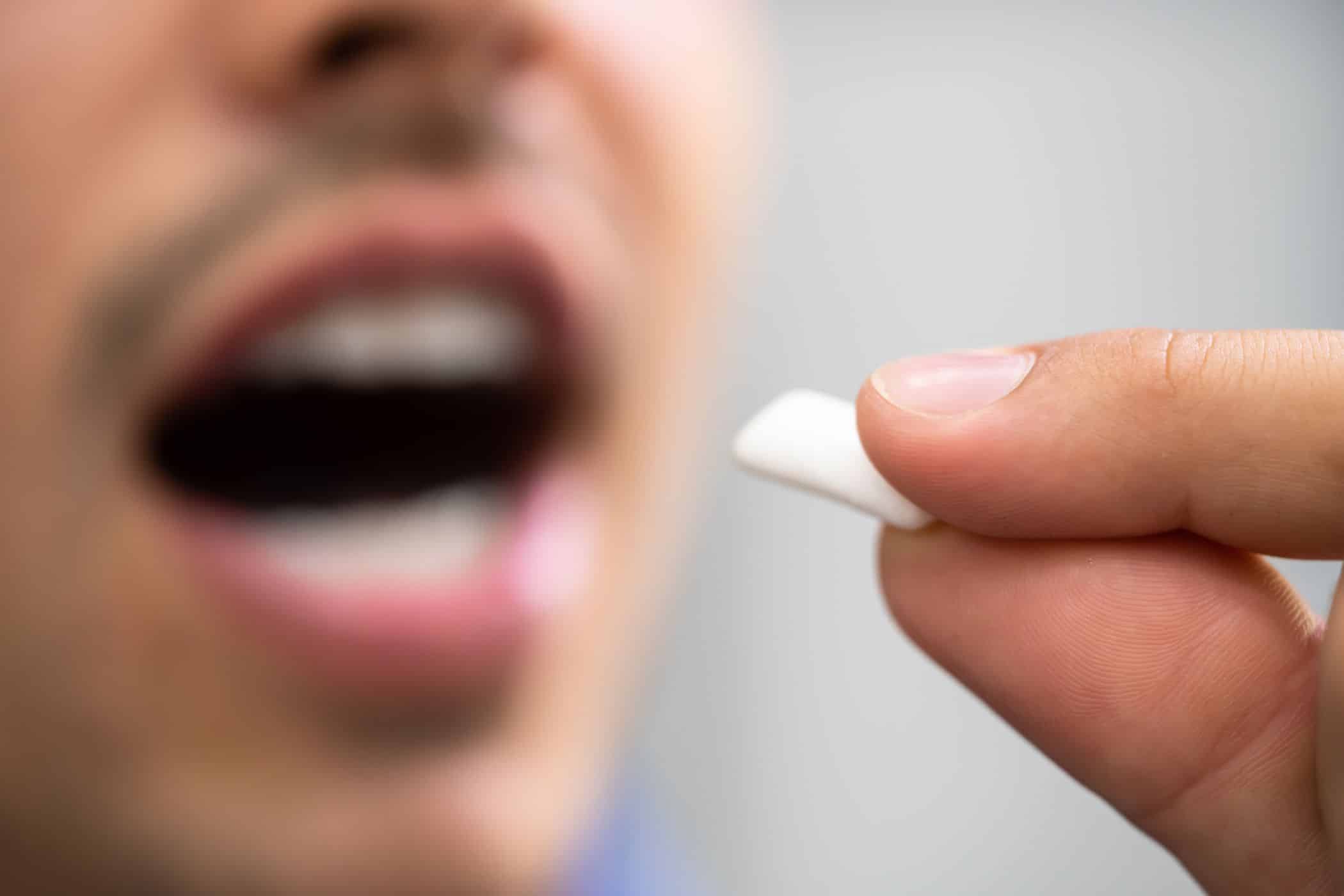
Considering the risks associated with vaping shortly after tooth extraction, you might explore nicotine replacement therapies to mitigate withdrawal symptoms temporarily. Options include:
- Nicotine patches
- Nicotine gum
- Lozenges
These can provide a safer alternative while your extraction site is healing and help you manage cravings. Remember, your oral health and recovery should take priority over the urge to vape or use tobacco products.
Additional Considerations

When considering vaping after a tooth extraction, it is crucial to understand the risks and how they can impact recovery. Your oral health and the success of the surgery may depend on how you manage these concerns.
Addressing the Risk of Infection
Your immune system plays a vital role in combating infection post-surgery. Using e-cigarettes can introduce harmful bacteria to the wound, increasing the risk of infection. To protect your oral health, it’s important to follow post-operative care instructions, which may include using an antibiotic prescribed by your dentist or oral surgeon.
Mitigating the Risk of Dry Socket
Dry socket is a painful condition where the blood clot at the surgical site fails to develop or is dislodged. One significant risk factor is suction caused by vaping, which can disrupt the clot. To mitigate this risk, avoid vaping, participate in gentle rinsing with saline solution, and apply pressure with gauze to control bleeding as directed by your healthcare provider.
The Role of Dental Conditions in Recovery
Pre-existing dental conditions, such as gum disease or inflammation, can affect recovery after oral surgery. Proper management of these conditions is essential. Address any dental issues prior to surgery, and ensure you have a plan for maintaining oral health during the recovery period.
Impact of Lifestyle on Oral Surgery Outcomes
Your overall lifestyle, including your diet, exercise, rest, and stress management, directly affects your recovery and oral health after surgery. Adopt a balanced diet, avoid smoking, and implement stress-reducing activities to boost your immunity and encourage healing. Remember that vaping can negatively impact the surgical site and delay healing, so it is best avoided during the recovery phase.
Conclusion
When considering vaping after tooth extraction, it is vital to understand how it may affect your healing process. Vaping can delay recovery due to the suctioning action required to inhale, similar to using a straw, which could dislodge the gauze and disrupt the formation of a blood clot, leading to a painful condition known as dry socket.
The potential risks associated with vaping, including respiratory problems and a reduction in blood oxygen level, also play into postoperative care. It’s important to maintain optimal oral hygiene following an extraction, but vaping may introduce harmful chemicals that can hinder wound healing and immune system function.
In terms of comfort, the throat hit from vaping might cause unnecessary irritation and discomfort to an already sensitive area in your mouth.
To prioritize your recovery effectively:
- Avoid vaping to prevent complications.
- Manage pain with appropriate medications as prescribed by your dentist or surgeon.
- Follow post-operative care guidelines strictly for better oral health outcomes.
Adhering to these instructions can minimize adverse effects and support a more efficient and comfortable recovery. Remember, while you might be eager to return to your usual habits, patience and proper care are crucial for your well-being after an extraction.
Frequently Asked Questions
When considering vaping post-tooth extraction, it’s essential to understand the potential risks and recommended guidelines to ensure proper healing and avoid complications.
What are the risks of vaping soon after a tooth extraction?
Vaping soon after a tooth extraction can increase your risk of developing complications such as dry socket, infection, and delayed healing. The sucking motion can dislodge the blood clot that’s essential for healing, leading to painful conditions.
How long should I wait before vaping after having a tooth extracted?
It’s generally advised to wait at least 48 hours before vaping after tooth extraction to allow the formation of a stable blood clot and reduce the risk of complications. However, waiting longer, if possible, is preferable for optimal healing.
Can using gauze reduce the chance of developing dry socket when vaping post-extraction?
Using gauze may help protect the extraction site, but it is not a foolproof method to prevent dry socket if you choose to vape. The negative pressure from vaping can still dislodge the clot even with gauze in place.
Are there any recommended methods to minimize complications when vaping after dental surgery?
To minimize complications, it is best to avoid vaping altogether until the wound has sufficiently healed. If you must vape, try to do so gently without creating negative pressure, and consult with your dentist for personalized advice.
How does vaping after tooth extraction compare to smoking in terms of healing?
Vaping, like smoking, can delay the healing process after tooth extraction. Both can introduce harmful substances and bacteria to the wound and negatively affect blood clot stability, leading to slower recovery.
What advice do official healthcare systems, like the NHS, offer about vaping after tooth extraction?
Healthcare systems like the NHS recommend avoiding any form of smoking or vaping after tooth extraction to prevent complications such as dry socket and to promote faster healing.

